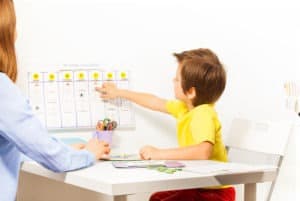
Many parents and therapists focus on their child’s speaking abilities, as well as their ability to make eye contact and take social cues. Developing these skills is the primary purpose of ABA therapy. Children are given reward-based incentives for learned and controlled behaviors.
Though physical activity may be difficult for many children with autism or other special needs, as their motor skills may not be fully developed, adding exercise to a special needs child’s daily routine can not only help control movements, but can also boost communication, behavioral, and social skills.
“Think about all the things you learn from play: turn-taking, role-playing, verbal and nonverbal communication, social roles,” says Meghann Lloyd, associate professor of health sciences at the University of Ontario in Canada.
Since these studies are mostly being conducted in early pilot stages, the most beneficial exercises for children with special needs are unknown. So far, yoga and creative dance have been seen as helpful.
Because more than 80% of children with autism struggle with handling scissors, kicking a soccer ball, or handling small objects with their hands, persistent movement is important to help create a muscle memory, and build up a child’s ability to handle their fine motor skills.
The majority of typically developing children do not believe that learning a new sport or game is difficult, but since children with special needs have trouble communicating with teammates, as well as with handling their body movements in the manner necessary to perform a sport, many of them may believe that they are unable to participate.
By practicing movement and communication, children with autism and other developmental disorders can be able to participate in group sports and social activities not only with other special needs children, but with their typically developing peers as well.
At the Deron School, each child is given an Individualized Educational Program (IEP) that helps the child reach their goals in and out of the classroom with specialized attention. With your child’s specific condition and skills in mind, our staff will craft a program best suited for them.